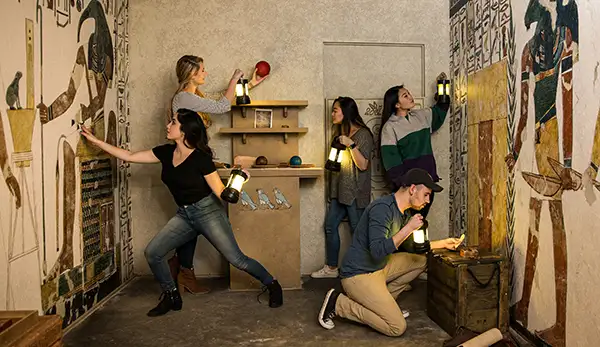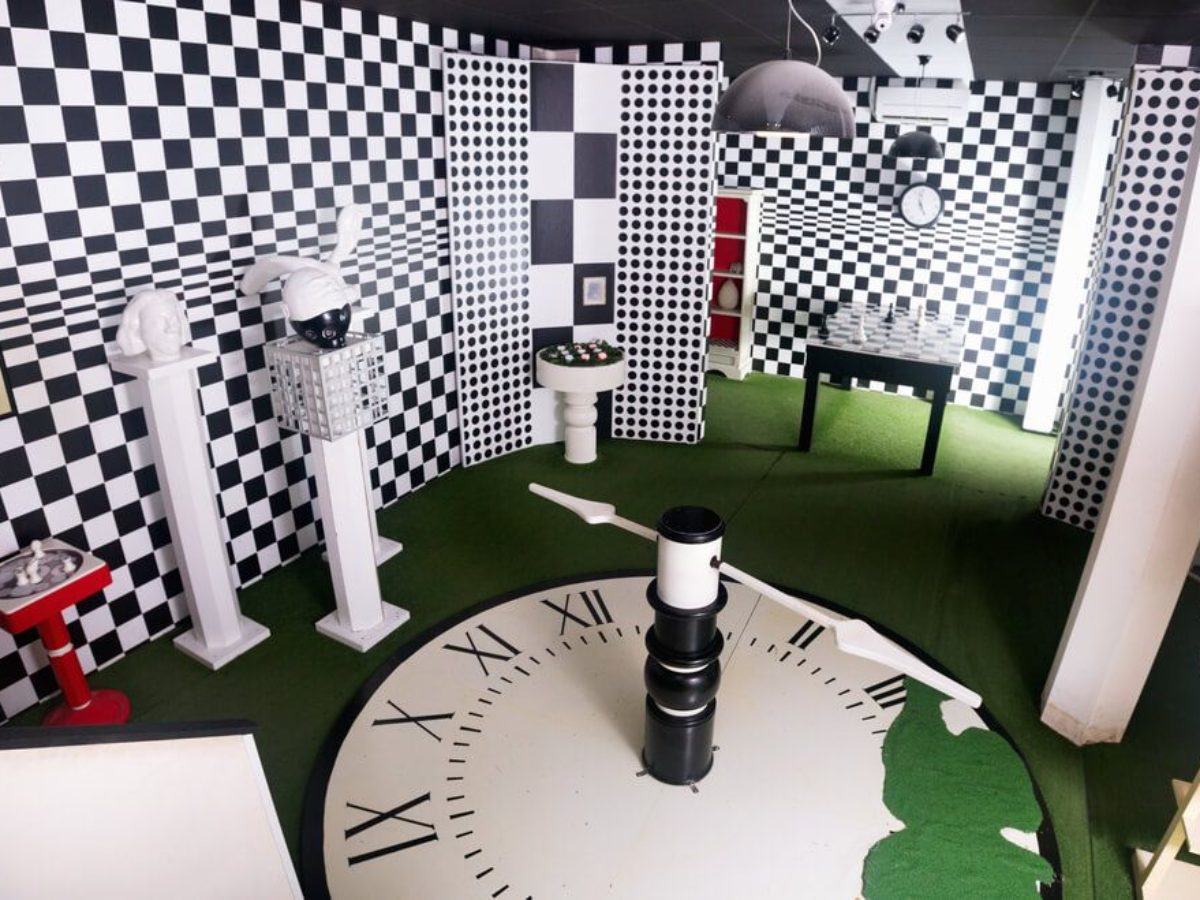Group Approaches: Just How to Team up Efficiently in a Retreat Space
Teams have to actively pay attention to each participant's insights, appoint roles that line up with individual strengths, and keep routine check-ins to make sure focus and stop redundancy. By promoting an atmosphere that values communication and adaptability, groups can considerably increase their efficiency and success rates.
Establish Clear Communication

To facilitate clear interaction, it is crucial to designate a main point of get in touch with for info dissemination. This duty involves summing up findings and recommended strategies to ensure every person continues to be on the same web page. In addition, embracing a methodical strategy to conversations can prevent disorderly exchanges. Brief, focused updates from each group participant can keep the team notified without overwhelming them with info - best escape room.

Designate Functions Tactically
While clear communication sets the structure for effective teamwork, appointing roles purposefully makes sure that each team participant's toughness are used efficiently. In a retreat space scenario, the time-sensitive and intricate nature of difficulties necessitates an efficient approach to job delegation. By identifying and leveraging specific competencies, groups can enhance their analytical capacities and improve general efficiency.
First, analyze the unique abilities and attributes of each individual. For instance, a person with a keen eye for information might master finding concealed objects, while a rational thinker can be better fit to solving challenges - best escape room. It's equally vital to have a leader that can supervise development, take care of the timeline, and make decisive phone calls when needed. This function frequently needs solid business and social abilities.
Second, ensure that roles are flexible and adaptable. As new challenges emerge, the team must be able to pivot, reallocating jobs as called for. This flexibility helps maintain energy and avoids bottlenecks that could occur as a result of inflexible duty jobs.
Ultimately, a strategic strategy to function task not only makes the most of the strengths of each employee yet also fosters a cohesive setting, driving the group towards a successful retreat.
Make Use Of Diverse Abilities
Recognizing and harnessing the diverse skills within your group can significantly raise your performance in a retreat room. Each employee brings distinct toughness to the table, and successfully leveraging these capabilities can quicken analytic and enhance general efficiency. As an example, an employee with strong logical abilities may excel at understanding complex codes or patterns, while an additional with keen observational capacities may swiftly spot concealed clues that could neglect.
Urge team members to voice their insights and ideas immediately, making certain that all possible remedies are considered. In addition, my response assigning tasks that align with each participant's toughness can protect against traffic jams and make certain that progression is continual.
Furthermore, diversity in skills frequently translates to diversity in assuming designs, which is very useful in a retreat space setting. While some obstacles might need logical thinking and accuracy, others may benefit from creative and side thinking. By identifying and leveraging this variety, teams can address a more comprehensive array of difficulties better, therefore boosting their opportunities of an effective getaway.
Manage Time Effectively

Identify noticeable challenges and split tasks based on group members' strengths, ensuring that no one is idle. This method can help maintain the team focused and prevent time from slipping away unnoticed.
In addition, site web prevent one-track mind. If a challenge is taking too long, revolve staff member or proceed to one more challenge, returning later on with fresh point of views. Communication is extremely important-- maintain everyone upgraded on solved problems and staying jobs to prevent repetitive efforts.
Lastly, use any tips or clues moderately but strategically - best escape room. Understanding when to request for aid can save beneficial time. By adhering to these time monitoring principles, teams can dramatically enhance their opportunities of a successful and enjoyable getaway area experience
Debrief and Show
Representation is a necessary element of group advancement and improvement in the context of getaway areas. Once the difficulty is finished, whether successfully or otherwise, it is crucial for the team to involve in an organized Full Report debriefing session. This process enables employee to evaluate their efficiency, recognize strengths, and identify locations for improvement.
Start the debrief by reviewing what worked out. Highlight specific instances of efficient interaction, problem-solving, and collaboration. Acknowledging these favorable behaviors strengthens them and motivates their repetition in future challenges.
Next, deal with the challenges ran into. Discuss minutes of complication, miscommunication, or inadequate strategies. Motivate an open and useful dialogue where group participants can share their viewpoints without anxiety of objection. This fosters a culture of continuous enhancement and discovering.
Final Thought
In final thought, effective partnership in an escape area is predicated upon clear interaction, critical function assignments, the efficient utilization of varied skills, and efficient time administration. By developing a cohesive and flexible team setting, the possibility of successfully resolving problems and achieving the goal of escaping the area is considerably boosted.